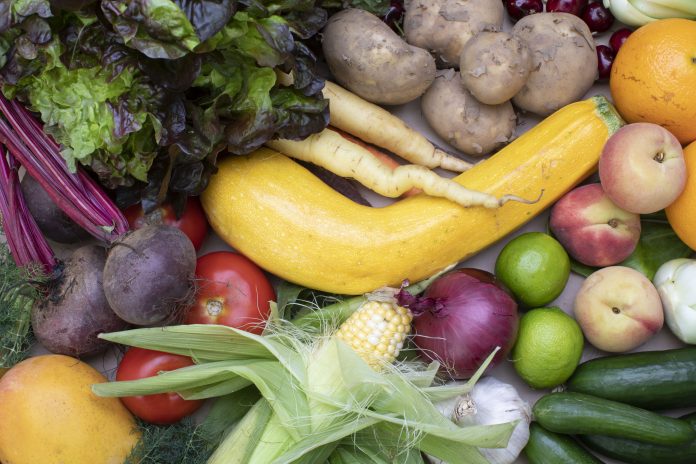Sydney-based social enterprise Good & Fugly has released its ‘The Farm to Supermarket Food Waste Report 2023’, a research piece exploring the good and the ‘fugly’ of farmer and supermarket relationships.
Good & Fugly works closely with Australian farmers to sell excess and cosmetically challenged produce to consumers. It is through this work that co-founder Richard Tourino was intrigued to investigate the relationship between Australian farmers and supermarkets, and specifically what impact this relationship has on food waste.
“The stats around food waste in Australia, and across the globe, are staggering. Globally 1 billion tonnes of food produced for humans is wasted each year. This wastage produces 8% of global greenhouse gas emissions and 25% of all vegetables produced don’t leave the farm. It’s the food waste lost between farm and supermarket that we wanted to unpack with this report. We’re hoping as the years go on, we see some of the numbers shift as attitudes towards the aesthetics of fruit and vegetables change. But for now, we’ve still got a long way to go”, Mr Tourino said.
The findings of the report – which surveyed both large farmers ($500k+) and smaller farmers (<$500k) – highlights the pressures faced by Australian farmers and the outdated nature of the supermarkets’ screening systems for fruits and vegetables. It also uncovered some insights into farmer profits and wider industry concerns.
Some of the key findings include:
- Smaller farmers have been hit hardest in the past year: Compared to a year ago, 42% of small farmers have reported lower profits.
- There are a range of concerns worrying farmers: When looking towards the future, farmers are most concerned about rising production costs, labour issues, and weather conditions.
- Produce rejection is also a concern to farmers: While a quarter (25%) of small farmers are concerned about produce being rejected by supermarkets, one in three (32%) larger farmers cite it as a concern, ranking it above cashflow issues and lack of control over pricing.
- Perfectly good produce is being rejected by commercial buyers: Majority of respondents (56%) agree that perfectly good produce is rejected due to cosmetic issues and the same number think making better use of imperfect produce is important to improve sustainability in the agricultural sector.
- The appearance of fruits and vegetables is a huge part of the food waste issue: “Appearance” is overwhelmingly the reason supermarkets reject fruit and veg followed by size with farmers reporting 68% of fruit and vegetable rejection from commercial buyers was due to appearance.
- A large share of crop never leaves the farm because farmers expect it to be rejected: The prospect of rejection by commercial buyers influences on-farm “self-rejection”, 51% of farmers screen out good produce because they don’t think it will be accepted by commercial buyers. One in five (20%) large farmers are losing more than 30% of what they grow because they expect it to be rejected by supermarkets because of its appearance or size.
- Farmers are losing out on profits: one in four (23%) farmers report supermarkets expect them to hand over imperfect produce for free. This increases to one in three (32%) for larger farmers. And overall, only 19% of farmers believe they are paid a fair price for their produce by commercial buyers.
- The individual financial loss due to rejected deliveries can be high: one in 10 farmers (12%) reported an annual loss of $50,000 or more as a result of rejected produce.
- Supermarkets need to change their ways: Farmers feel supermarkets are too strict on their screening of fruit and vegetables, with 40% of large farmers reporting that supermarkets will reject a whole pallet over one “bad apple”.
- Farmers have a limited range of options for rejected produce: 37% of farmers said the rejected produce can be sold to alternate buyers, but this is often at a discount. 32% of farmers report that rejected produce is repurposed into other products such as marmalade and soaps.
“We can see through these answers that, simply put, there’s a lot of produce that is being rejected by supermarkets purely for the way it looks and its dramatically impacting farmers’ profits. Collectively, if we look at the loss of profits from farmers in the report due to rejected produce and average it out across Australia’s 15,000 farmers, these losses equate to a total of $27.9 million, or roughly 13.95 million kilos of fruit and vegetables, being lost annually in Australia”, Mr Tourino said.
“It’s not just up to farmers and supermarkets to solve this issue, the more consumer demand there is and uptake in eating quirky produce, or looking for new and innovative ways to utilise ‘fugly’ fruit and vegetables by local companies, the better it will be for everyone. We’re already seeing a surge in creative startups tackling the food waste problem in their own ways and supporting farmers along the way. We’re urging supermarket giants to reconsider how they screen their produce and to normalise the sale of quirky looking fruits and veggies. It will be better for the environment, for farmers, and for Aussie consumers’ wallets.”
Good & Fugly’s ‘The Farm to Supermarket Food Waste Report 2023’ is available for download via goodandfugly.com.au/pages/report2023.





